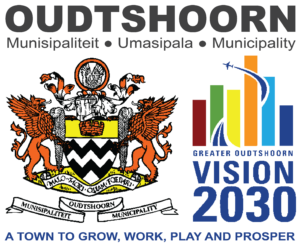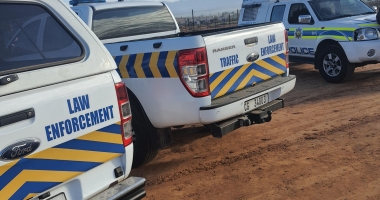Oudtshoorn, 07 June 2021 – Oudtshoorn Municipality in a joint operation with Oudtshoorn Municipal Law Enforcement, the South African Police Services (SAPS), Telkom, Transnet, and the Vehicle Theft Unit, recently conducted a workshop with several second-hand goods dealers and scrap yard facilities. The aim was to focus on several issues concerning procedures and health risks within the scrap yards and to be stricter when it comes to the Second-Hand Goods Act.
The Second-Hand Goods Act 6 of 2009 aims to regulate the business of dealers in second-hand goods and pawnbrokers, combat trade in stolen goods, promote ethical standards in the second-hand goods trade and provide for matters connected therewith. The Act further states in section 21 (1) that “unless otherwise provided in this Act, a dealer must keep a register in the prescribed form and record in the register the prescribed particulars regarding every acquisition or disposal of second-hand goods”. The SAPS already established a forum and meetings are being held monthly to oversee that rules and regulations are followed and also to guide second-hand goods dealers and scrap yard facilities.
As part of the contingency plan to curb vandalism and theft of municipal and private property, this forum wants to create awareness among residents as well as second-hand goods dealers and scrap yard facilities. The focus of the forum is to address issues concerning those who have had their properties vandalised, follow strict compliance processes on how to sell goods, as well forming a partnership with the police on the consequences one faces when committing the crime of selling stolen materials. The joint operation team visited several scrap yards during the operation and received positive feedback and cooperation from these business owners as these issues were addressed on the property of the present scrap yard owners.
The Executive Mayor of the Greater Oudtshoorn, Chad Louw, is optimistic about this venture and said that creating a platform where second-hand materials that are sold to the goods dealership can be identified and traced from sellers by using an identification process is the way forward to create safe neighbourhoods where communities can prosper. “This procedure will allow easier policing on items which have been stolen by the sellers. Providing an identification when selling the materials will allow perpetrators to be caught and to avoid the re-stealing of materials,” Mayor Louw stated.
The Environmental and Heritage officer of the municipality, Mr Ambrose Carelse’s concern while visiting these sites is the burning of unknown materials on the sites without the necessary permits. “It is pivotal that we ensure all the burnings which take place on these sites have permits and are safe within the community and that they are not a health risk,” Carelse said.
More joint operations will be conducted to ensure that the facilities are compliant and to ensure that their duty of care towards the environment is being implemented.

